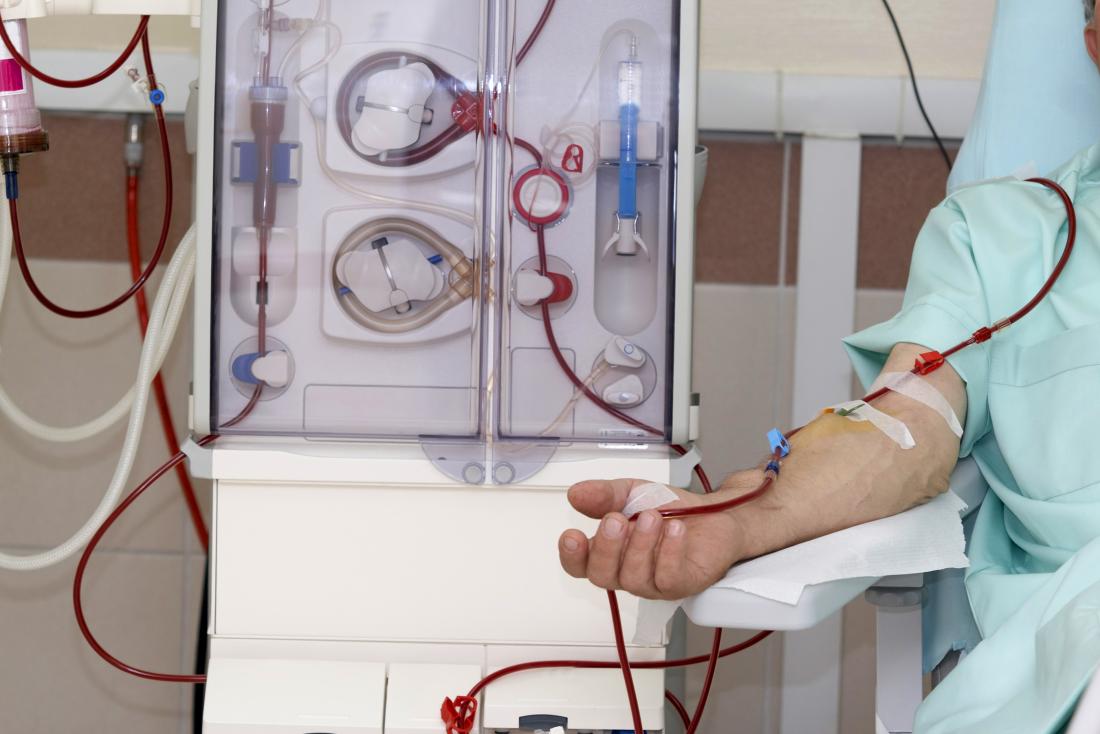Top 5 FAQs on dialysis as a treatment for kidney disease
Every organ in your body works in harmony to ensure that you can conduct your daily activities with ease. Even if one organ falls out of sync, it could cause issues to your health and wellbeing. One vital organ that could cause fatal ailments if affected is your kidney.
Your kidneys help filter toxins from your blood. If they are affected, it could lower your body’s ability to purify your blood, which could, in turn, affect your entire body. Additionally, your kidneys help regulate your pH, salt, and potassium levels.

With over 7.8 million people in India living with chronic kidney diseases, dialysis is a common treatment to help your body function properly. Dialysis is a process that can act as a substitute for kidney function when they aren’t working correctly. It helps regulate fluid levels in the body, filter waste products, and control urination. Several dialysis centers in Jabalpur can help reduce the buildup of waste in the body caused by kidney diseases and protect the body from illness.
Here are a few frequently asked questions that will help solve your doubts before undergoing treatment at our dialysis center in Jabalpur:
- Q: Why do you need dialysis?
A: If your kidneys are not functioning at their full potential due to ailments such as chronic kidney disease, you may be a candidate for dialysis. Dialysis steps in to eliminate waste from your body. Visiting our dialysis center in Jabalpur can help you decide whether it is the right treatment for you or not. - Q: What are the different types of dialysis?
A: There are two main types of dialysis:
1. Hemodialysis: This is a type of dialysis where a dialysis machine purifies your blood. A tube is attached to a needle in your arm, and blood is pumped out along the tube to a machine. The machine filters it and passes the clean blood back into the arm via another tube. This is usually carried out 3 days a week, with each session lasting up to 4 hours. This process is generally done at a dialysis center in Jabalpur, though it can be done at home too.
2. Peritoneal Dialysis: This process uses the inside lining of the abdomen (the peritoneum) as the filter rather than a machine. The peritoneum also contains thousands of blood vessels, making it great for filtering blood, like the kidneys. Before the treatment, a cut is made in the abdomen, and a catheter is inserted through the cut, which remains in place permanently. A cleansing fluid is pumped through this catheter into the peritoneum, which filters out your blood. Then the waste material from the blood is drained into a bag and replaced with fresh cleansing fluid.
The most common type conducted at dialysis centers in Jabalpur is Hemodialysis.
- Q: What are some possible complications or side effects associated with dialysis?
A: Dialysis is a fairly safe procedure. The most common side effect is exhaustion, regardless of the type of dialysis treatment you opt for. Other common side effects are itching, sleep problems, joint pain, and muscle cramps. In extreme cases, patients may develop issues, such as elevated or low blood pressure, infection at the site, pericarditis, anemia, and high potassium levels. When undergoing the treatment, the nephrologist at your dialysis center in Jabalpur can best guide you about the complications you may face. - Q: What can I do to help my treatment be more effective?
A: Along with dialysis, patients suffering from kidney disorders are often put on strict diets that include high-quality proteins, low sodium and that helps regulate phosphorus levels. We recommend a plant protein diet that can help with all of these. Not only are they good for your body, but they also help along the healing process and take the load off your kidneys. Also, you should ensure cleanliness and hygiene to prevent infection. You should consult a dietician at your dialysis center in Jabalpur to find the diet that would suit your body. - Q: Is dialysis a cure?
A: While dialysis may not be a cure, it is a valuable treatment that can help improve quality of life and protect your body from further issues in the long run. Sometimes, you may only need dialysis till your kidney starts functioning like normal again. Most patients undergo dialysis till they can receive a kidney transplant. However, this should not discourage you from the treatment. For patients suffering from kidney disorders, dialysis will not only help them feel better but also allow them to resume regular activities, such as exercising, which may have otherwise been impossible.
Wrapping Up:
Now that you know the benefits and what to expect during dialysis, hopefully, you will be able to make a well-informed decision on whether to visit your nearest dialysis center in Jabalpur or not.
The Dialysis Department of City Hospital is one of the best AKU units in Jabalpur. It gives comprehensive care, which includes hemodialysis and peritoneal dialysis. Our hemodialysis unit
is equipped with 19 ultramodern dialysis machines and an RO plant. We ensure that all precautions are taken to give you the utmost care and comfort. Visit us for the best dialysis treatment in Jabalpur.
